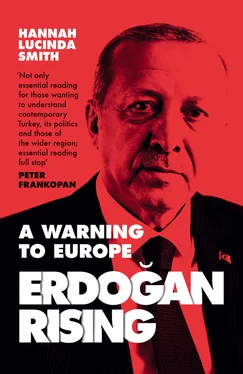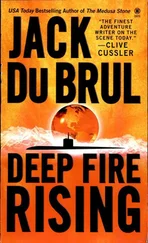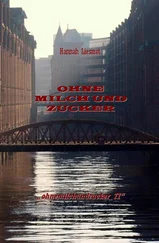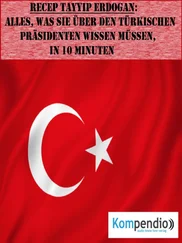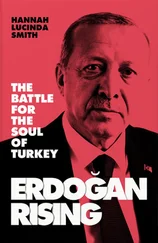The morality is complex but the answer is simple: we can’t turn our backs on Turkey because Turkey and Erdoğan matter. Forget old clichés about East-meets-West – it is far more important than that. Here is a country that buffers Europe on one side, the Middle East on another, and the old Soviet Union on a third – and which absorbs the impacts of chaos and upheaval in each of those regions. During the Soviet era, it took in refugees from the eastern bloc looking to escape the despotism of communism. When that empire collapsed, it became a place where the poor ex-Soviets went for work, and the rich showed up to party. Now, with the Middle East sinking into ever-greater turmoil, it is the world’s biggest refugee-hosting nation, with five million from Syria, Iraq, Afghanistan and others.
Turkey is a member of the G20, and is recognised as one of the world’s largest economies. It has the second biggest army in NATO, the Western military alliance which, with the rising expansionist ambitions of Russian President Vladimir Putin, is finding itself sucked into a new Cold War. More than six million Turks live abroad, the street ambassadors of a country that trades and negotiates with almost every other nation on earth. This is not a far-off hermit-state, isolated from the rest of the world. It is a major player, vital to global security and prosperity.
For millennia, the ground on which modern Turkey stands has been coveted and fought over because it stands at the nexus of trade routes and civilisations. To see it for yourself, spend an hour people-watching under the soaring ceiling of the new Istanbul airport, the biggest of Erdoğan’s increasingly outlandish vanity construction projects. It was opened in April 2019, and the Turkish government says that more than 200 million people will pass through its halls by the year 2022, making it the biggest and busiest in the world – twice as many passengers as Atlanta Airport, two and a half times as many as Heathrow. Cruise through its duty-free shopping area and you will spot Gulf Arab women wrapped in black fabric with only their eyes showing alongside sunburnt and flustered Brits in ill-advised tank-tops and shorts. There will be dreadlocked backpackers, preened Russian princesses, and, if you time it right, Islamic pilgrims swathed in white sheets making their way to Mecca. There will be people with wide Asiatic faces, and statuesque African women swathed in fabulous prints. Turkey sits at the centre of all of this.
It sits, too, at the centre of the journeys that the people on the wrong side of globalisation are making – the illicit trafficking routes that stretch from the Middle East and Africa, through Turkey and the Aegean Sea to Europe. In Istanbul’s backstreet tea shops another kind of travel market is flourishing, no less buoyant than that in the ticket halls of the new Istanbul airport. Here, shady men in leather jackets cut deadly deals with desperate people. Survival does not come guaranteed with a smuggler’s ticket to Europe, but it will cost you more than a budget flight from the shiny new airport.
So let’s think about what might happen if Erdoğan were to turn Turkey’s back on the West entirely, or if the country were to descend into full-on chaos. That surge of people in 2015, travelling from Turkey’s shores to Greece in search of a new life in Europe? That was nothing. There are millions more in the developing world still desperate to make that journey, and a collapsed Turkey could be their back door. What if, even worse, there were to be a major conflict or economic collapse in Turkey itself? Not only would thousands, perhaps millions, of Turks join the flow to Europe, but shrewd leaders like Russia’s Vladimir Putin would be quick to capitalise on the chaos to expand his territories and influence, just as he has done in Syria.
Erdoğan is no fool. He knows how important he is and he plays on it, often seeming to push his Western allies’ buttons just to see what will happen. He may sometimes look like a man deranged, but he is also a smart political operator who was refining his brand of populism a decade and a half before Donald Trump cottoned on. If Western countries want to contain and control Erdoğan – as they will have to if they are to keep Turkey stable and engaged in the world – then first they need to understand him. More than that, they need to understand why so many Turks adore him.
What is there to adore? On the face of it, not very much. Recep Tayyip Erdoğan lives in a thousand-room palace complex, Aksaray (White Palace), that he built almost immediately on becoming president. He and his followers have a taste for outlandish historical dressing-up. In a photo call with Palestinian President Mahmoud Abbas, he posed on the staircase of Aksaray with soldiers decked out in costumes from the various eras of the Ottoman Empire. Despite his constant harping on about his working-class roots, and his apparent championing of the underdog against the elites, his wife and daughters dress in haute couture from the famous fashion houses of Europe.
The party Erdoğan leads, the Justice and Development Party ( Adalet ve Kalkınma Partisi , or AKP), is the most successful in Turkey’s democratic history, even though it has never won more than 50 per cent of the vote. Erdoğan himself has stood at the helm of Turkish politics longer than any other leader in the country’s history. Since first becoming prime minister in 2003 he has quashed the power of the military, rewritten the country’s constitution, remoulded its foreign relations and mastered divide-and-rule politics better than any other current world leader.
Erdoğan’s grip on power might often appear shaky – he only just clinches victory each time he takes his country to the ballot box. But it is this constant sense of threat, this dread that he could be ousted and everything go back to the way it was before he came, that galvanises his supporters. He is not an Assad or a Putin, who use their faked and overwhelming electoral victories to cling on in their palaces. Erdoğan’s continuing dominance over Turkey rests as heavily on those who despise him as it does on those who idolise him. In order to be loved more, he must show his fanbase that there are those who are ready to overthrow him – and could feasibly do so. So, too, must they sense the constant threat in order to feel the wave of overwhelming ecstasy when he comes out on top after yet another crisis – and there have been many of those.
Turkey is still officially a candidate for EU membership, yet in my time covering this country as a newspaper correspondent I have been detained by the police twice, tear-gassed more times than I can remember, and had a Turkish tank turn its turret on me as I tried to speak with Syrians fleeing an onslaught of violence behind the closed border. From my front door I have watched the country I call home nosedive down the rankings for democracy, press freedom and human rights. Like every other journalist in Turkey I am constantly reconfiguring the limits of what I can say. Can I laugh? Criticise? Question? The threat of imprisonment or deportation always lingers in the air for the country’s international press corps, but for Turkish journalists it is real. Some sixty-eight are currently behind bars, the highest number of any country in the world. Add to them the tens of thousands of academics, opposition activists, serving politicians and alleged coup plotters who are also languishing in jail, waiting for trials that are likely to take years to come to court, and you start to get a sense of the kind of country Turkey has become – although a tourist searching for a cheap holiday might still look at the weak lira and the turquoise seas and happily bring their family here for a fortnight. While the package-deal masses race to the all-inclusive resorts and adventurous weekenders explore Istanbul’s atmospheric backstreets, Turks are watching their savings crumble, food prices soar and their children frantically search for any way out of the country.
Читать дальше
